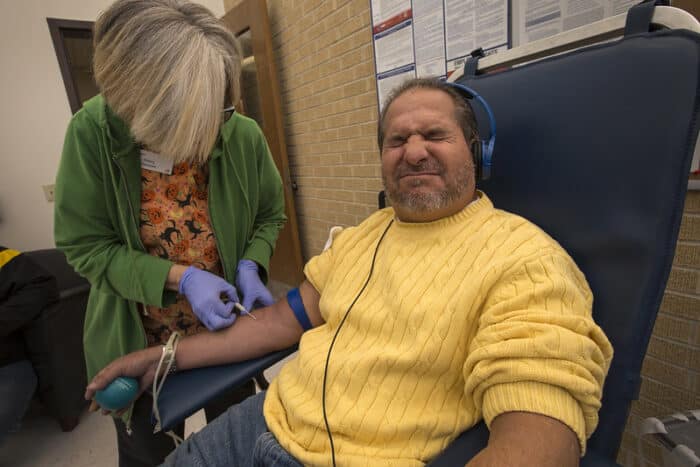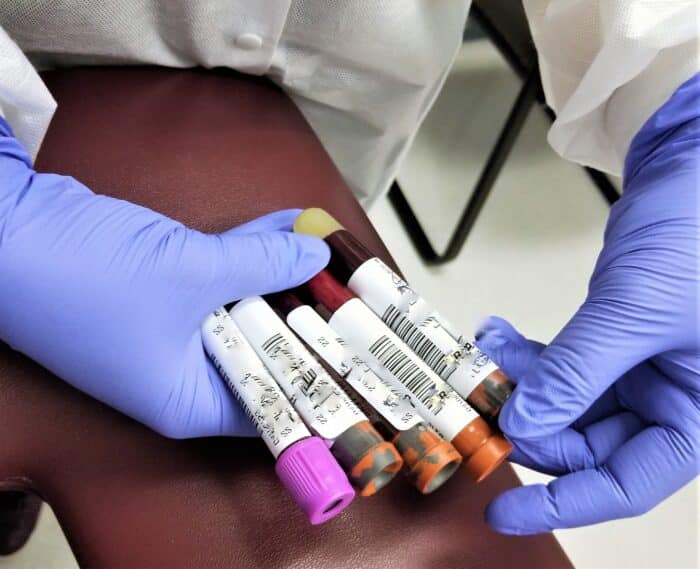If you’re interested in pursuing a career in healthcare, but don’t want to spend years on schooling and thousands on getting the proper education, you might want to consider a career in phlebotomy.
If you’re also interested in pursuing cardiovascular healthcare, don’t worry, you can still become a Cardio-Phlebotomy Technician!
In this article, we will uncover everything you need to know about Cardio-Phlebotomy Technicians, who they are, what they do, how to become one, and so on.
Ready to know all about the potential career of your dreams? Let’s start!
What is a Cardio-Phlebotomy Technician?
A Cardio-Phlebotomy Technician, or simply a Cardio Tech, is a special kind of healthcare worker who has a special mix of abilities. They learn how to take blood (that’s the “phlebotomy” part) and help out with procedures related to the heart (the “cardiovascular” part).
These people can also be known as healthcare professionals who help doctors and nurses in figuring out and treating heart problems. They play a crucial role in keeping our hearts healthy.
Also see: What is a Phlebotomist
What Do Cardio-Phlebotomy Technicians Do?
Now that you know who Cardio-Phlebotomy Technicians are, you might be wondering what their roles and responsibilities consist of.
Let’s take a look.
– They draw blood samples from patients for diagnostic purposes.
– They assist in cardiovascular procedures such as electrocardiograms (ECGs or EKGs), stress tests, and Holter monitoring.
– They ensure precision in their tasks to gather accurate data for identifying heart-related conditions.
– They play a vital role in supporting doctors and nurses in diagnosing and treating heart issues.
Cardio-Phlebotomy Technician Salary
Now, let’s talk about how much money Cardio-Phlebotomy Technicians can make. The amount they earn can be different depending on where they work, how much experience they have, and the kind of healthcare place they work at.
On average, in the USA, Cardio Techs typically earn a decent salary, usually around $40,000 to $50,000 per year. If they have more experience and special certifications, they can make even more money.
Read: Phlebotomist Salary
Cardio-Phlebotomy Technician Top Skills
As is the case in every profession, there are certain skills a good Cardio-Phlebotomy Technician must have in order to stand apart from the crowd.
Let’s take a look at some of them:
1. Accuracy: Paying close attention to details is a must when drawing blood and performing heart tests.
2. Compassion: Dealing with patients in potentially stressful situations calls for a caring approach.
3. Technical Expertise: Being really good with medical tools and technology is essential.
4. Communication: They should communicate well with patients and the healthcare team to ensure everything goes smoothly.

Do You Want To Become a Phlebotomist? Check Out Free Phlebotomist Masterclass!
In our masterclass you learn:
- How to be a Phlebotomist faster…in just 2 months!
- Avoid student debt & driving to classes
- #1 thing employers want from Phlebotomists
- How to stand-apart & get a university certificate for a strong resume
See: Phlebotomist Skills
How To Become a Cardio-Phlebotomy Technician
So now you might be curious about the process of becoming a Cardio-Phlebotomy Technician.
We’re here to help you with that.
Here’s how you can become a Cardio-Phlebotomy Technician-
Get the Right Education:
Start by finishing high school or getting a GED.
Join a Training Program:
Enroll in a training program for Cardio-Phlebotomy Technicians. These programs are usually offered at vocational schools or community colleges.
Get Certified:
To boost your chances of finding a job, consider getting certified. This means passing a test to prove you’re qualified. Different places might have different certification requirements, but you can look into organizations like the National Healthcareer Association (NHA) or the American Society of Phlebotomy Technicians (ASPT) for certification.
Practice What You’ve Learned:
Gain practical experience by doing internships or training on the job. This is really important because it helps you get better at your job.
Maybe Specialize:
You can also choose to specialize in working with the heart. This might mean getting extra training or certification to do specific heart-related tests.
Start Your Job Search:
Look for jobs at places like hospitals, clinics, or labs. They often need people with your skills to help take care of patients.
Conclusion
Becoming a Cardio-Phlebotomy Technician offers a unique role that combines the skills of phlebotomy with a specialized focus on cardiology, making it an essential part of patient care.
As a Cardio-Phlebotomy Technician, you will have the opportunity to make a meaningful difference in people’s lives by assisting in the diagnosis and treatment of cardiovascular diseases.
Related Resources:
- How to Become a Phlebotomist
- Day in the Life of a Phlebotomist
- Phlebotomist Job Description
- What is the Main Responsibility of a Phlebotomist?
- Where Can a Phlebotomist Work?
- Pros and Cons of Being a Phlebotomist
- How To Get a Phlebotomy Certification
- Top Places That Hire Phlebotomy Techs
- Phlebotomist vs CNA
- Therapeutic Phlebotomy
- Phlebotomist School
- Phlebotomy Classes
- EKG Phlebotomy Technician
- Order of Draw Phlebotomy
- Phlebotomy Internship
- 4-Week Phlebotomy Classes Online
Related Articles
-
How to Be Successful in College in 2022 – 7 Simple Tips to Succeed
-
How Do Scholarships Work? Read This First…Truth is Shocking
-
7 Best College Majors 2024: What Should I Major In?
-
How to Choose a College – 10 Things You Must Consider in 2024
-
Why Go to College? Top 13 Benefits for Adult Students in 2022
-
Top 5 Best Alternatives to Community College for 2024








